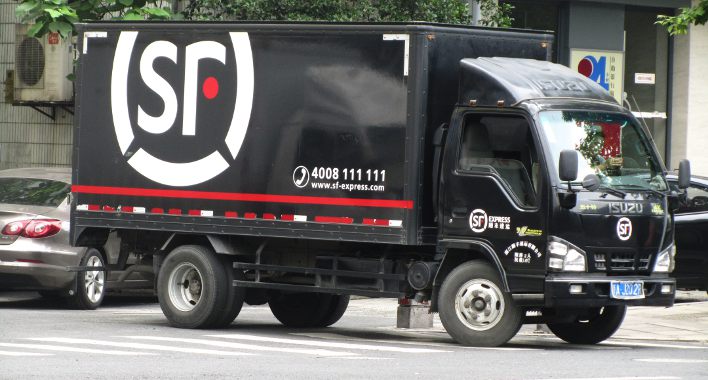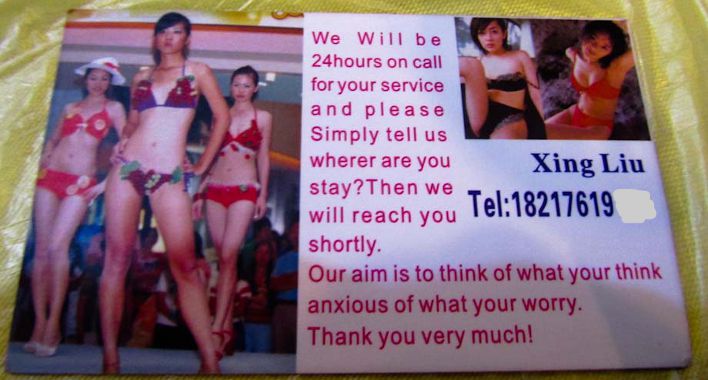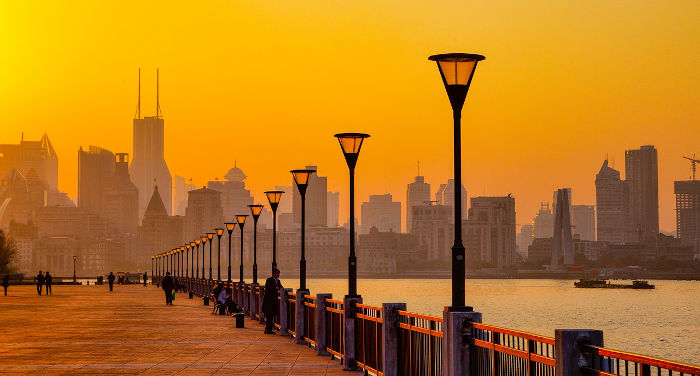This article was written by Taylor Hartwell of Re Orient Yourself
If you’ve ever visited China, been on the internet, or read a newspaper, you might be aware that there’s a bit of an air quality issue here. And by “issue,” I mean choking layers of toxic smog that make the wasteland of Mad Max look like an appealing tourist destination.
Yes, everyone knows China has messed-up air, but what’s it actually like? Having lived in Beijing for the past few years, I’m here to offer my (hopefully unbiased) perspective on how we got here, what the smog is really like, and what potential visitors to the country ought to know.
Is is really that bad?
You mean like this? Well, occasionally. I’ve been here two years, and in that time there have only been a handful of days up at the crazy “red-alert” level. But although those days do exist – those Silent Hill-looking pictures of Tiananmen Square certainly aren’t photoshopped – they’re the exception rather than the rule. As with many things, the worst case scenario version you see in the headlines isn’t exactly representative of daily life.
Before you start suspecting me of being a member of the CPC’s propaganda team, let me be clear: there’s no question that Beijing and many other major Chinese cities have horrendous air pollution. The quality of the air is, on average, far worse than any American or European city – especially in the winter, when the state-controlled central heating is on and everyone is walking and biking less.
It’s not at all unusual for there to be a noticeable haze; often to the point where visibility is significantly decreased. And this is just places like Beijing and Shanghai – far from the most polluted cities in the country. Although they don’t get nearly as much (or any, really) media attention, it’s power-plant-adjacent cities like Baoding that get the worst of it. The point is, it’s not good.
But there are plenty of nice days as well. The last month in Beijing has been basically nothing but beautiful blue days – and let me tell you, I’ve never more deeply and sincerely appreciated nice weather more than I do now. I’m aware that’s kind of like eating dirt for a month and then gushing over a normal home-cooked meal, but I’ll be damned if it isn’t true.
Of course, not everyone shares my hopeless optimism, and the air quality has done damage to more than just China’s citizens. You don’t need to be a social scientist to realize that it drives away tourism, and China is having more trouble than ever retaining the kind of talent necessary to keep foreign companies operating in the country.
So how did this happen?
That’s pretty simple, broadly speaking. China has some of the worst air pollution for the same reason it has such bad traffic – they’ve got the world’s biggest population and have squeezed a hundred years of industrialization and development into the past few decades. Since there’s no real elections or accountability for the government, the CPC has gotten its legitimacy from results – and for year after year, even the slowest growth rates they’ve delivered are pretty incredible. Mere percentages to read about in the Wall Street Journal for us, perhaps, but we’re talking about a government that – by whatever means – has lifted more people out of poverty than anyone else in the world.
And how did they do it? Huge construction projects. Enormous power plants. Becoming the Factory of the World. They built and they mined and they built and as a result millions and millions of people got to feed their families. And in doing so, they became both the largest producers and consumers of coal in the world. They also built roads and filled them with millions of cars. And for most of that time, no one worried much about what was happening to the environment; that was a problem for the future and they had plenty of problems to deal with in the present.
I’m not here to apologize for the CPC, nor am I here to condemn them. It can be argued just as convincingly that they should have paid more attention to the lessons of history while building up the country and invested more into renewable tech and such. But for what it’s worth, that’s my basic understanding of how we got from A to B. Or rather, “A” to “good-god-I-can’t-Breathe.”
Ok, so what if I want to visit? Is it going to kill me? How can I protect myself?
Short answer: Come visit! You’ll be fine, seriously. Aim for fall or spring if possible – that way the temperature will be pleasant if nothing else – and relax. Thousands of abroad students survive the smog every semester; even Zuckerberg managed to cheat death on his little Tiananmen smog-jog stunt. That’s to say nothing of the hundreds of millions of urban Chinese who manage to foil media expectations every day by obstinately not dropping dead.
But hey, I hear you. I was concerned too – in fact, the smog was the one thing that almost kept me from moving here in the first place. Here is a selection of the best masks on the market that is unaffiliated with any of the companies. Here is a nice extensive article about home air purifiers from a Beijing expat with a human budget. And here is my practical advice:
- Don’t do your HIIT cardio sessions outside on red-alert days;
- Don’t go climb the 1000-step section of the Great Wall if you can’t see the top;
- Get the US Embassy air quality app. The Chinese media is not overly invested in telling you the truth;
- Shower often and thoroughly. I doubt this helps in any physical way, but it sure makes you feel better. Of course, you want to avoid getting the tap water in your mouth, but that’s a whole other thing.
Fine, I’ll visit. But what about long-term health effects? Aren’t you worried about cancer/black lung/the plague?
This one’s harder to answer; I’m not a medical professional and obviously I’m biased in what I want the answer to be, so I’ll keep this bit short and to the point.
No, living in Beijing or similar is not like smoking 40 cigarettes a day. Why am I so sure of that? Because it’s goddamn ridiculous, that’s why. I’ve smoked maybe 3 cigarettes in my life, and every single time I’ve woken up the next day feeling like I screamed myself hoarse. The worst a smoggy day here has ever done is irritate my throat a bit. If that seems unscientific – probably because it is – here is an article from an actual doctor who’s actually done his homework and actually lives and works here. Every doctor I’ve seen in the past two years has told me that my lungs are just fine, and that frankly I should be more concerned about the state of my liver.
Because this is obviously a serious issue, I’ve sought out multiple western doctors in Beijing to get their thoughts on the subject and – although I don’t have a citation for this – they’ve all told me more or less the same thing: living here isn’t great for your lungs, but with adequate precautions (i.e. mask and purifier) your additional incurred cancer risk over a few years is pretty minimal.
Of course, they’re probably biased towards optimism just as I’m biased towards believing them. But honestly, this strikes me as a case of people worrying about what they can’t control rather than working on what they can. Every day, millions of people smoke cigarettes, drive cars, and eat at those Pizza Hut/Taco Bell combo places. If you are considering moving to China and find yourself worrying about the pollution issue, I urge you to consider this: how many potentially life-shortening choices do you make on a daily basis that don’t involve having the adventure of a lifetime?
…too real. Moving on!
So… is there any hope for the future?
Actually, yes! In my time here, the air quality has gotten noticeably (and measurably) better. In fact – although I may change my tune with the arrival of winter – it really has been quite some time since I’ve seriously referred to Beijing as the “airpocalypse.” The machinations of the CPC are always a mystery, but it’s safe to say that improving air quality has been pretty high on their to-do list ever since the embarrassment of 2013.
The nice thing about a government that brooks no opposition is that they can solve problems just as freakishly quickly as they can create them. Just look at what they managed for their big military parade last fall – and how quickly things went back to normal. Between complete control of the factories and their license plate lottery system, it’s clear that having the right tools isn’t the government’s problem – it’s finding a way to clean up the skies without losing control over the land under them.
In the meantime, a simple mask is all you need to enjoy the Mysterious East worry-free! Just don’t drink the water, eat the wrong street food, express the wrong opinion in public, or get into the wrong kind of cab…
One problem at a time, friends. One problem at a time.




I just returned from a vacation in China, in October, and it was bad. Yes, it was so bad that I did feel like I’d been smoking cigarettes. Taylor is minimizing the effects, it’s worse than he says. That said, I loved China and have no regrets about choosing to vacation there. They are lovely people and I’m grateful for the experience. Just be prepared by bringing a mask with good filtering or buy one when you’re there.
If it seems like I’m minimizing, sorry about that – it wasn’t my intention. We’ve got a “red-alert” week coming up and god knows I’m going to be hiding inside with my mask on and face buried in a pillow. My intended point was just that yes, sometimes it’s awful, but since all we ever hear about back home is the AIRPOCALYPSE in Beijing, I wanted to balance the scales a bit and inform people that it’s not like that every day or even every month, nor will it cause you to drop dead on the spot. Thanks for reading!